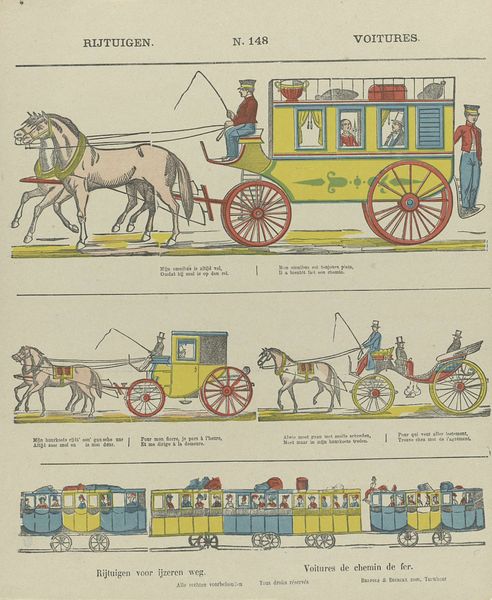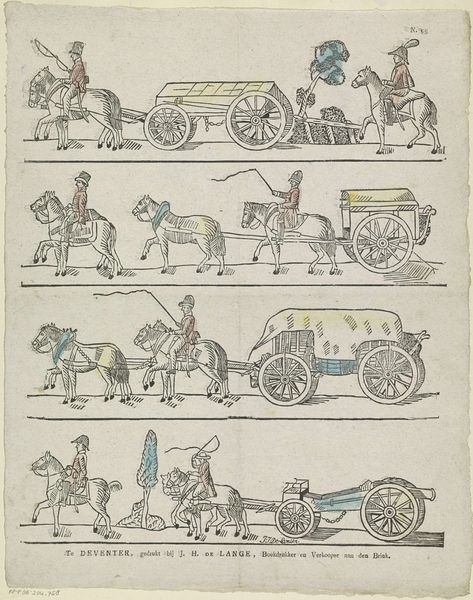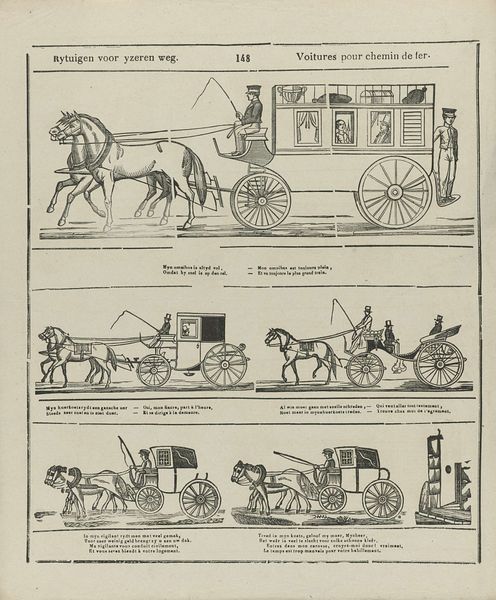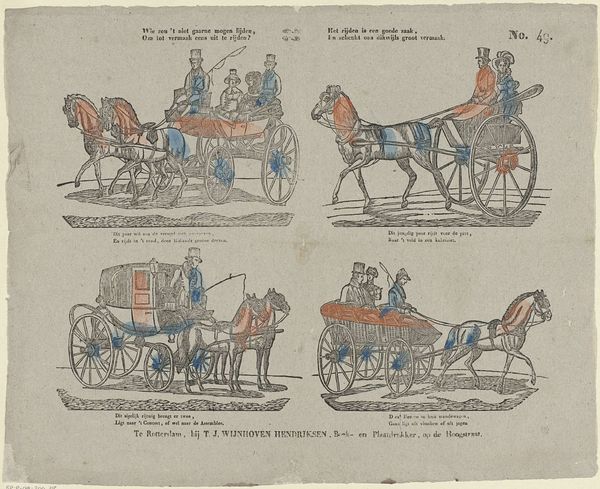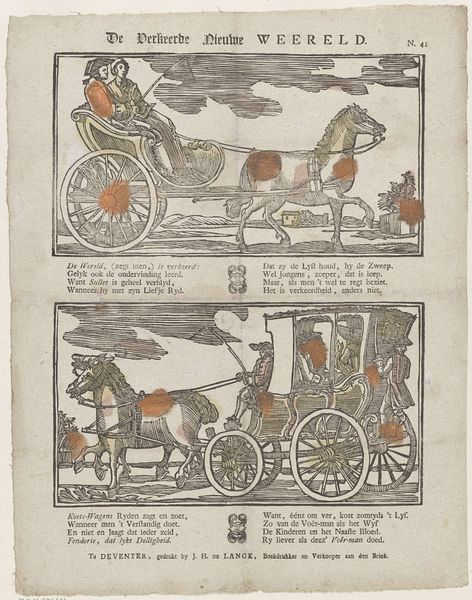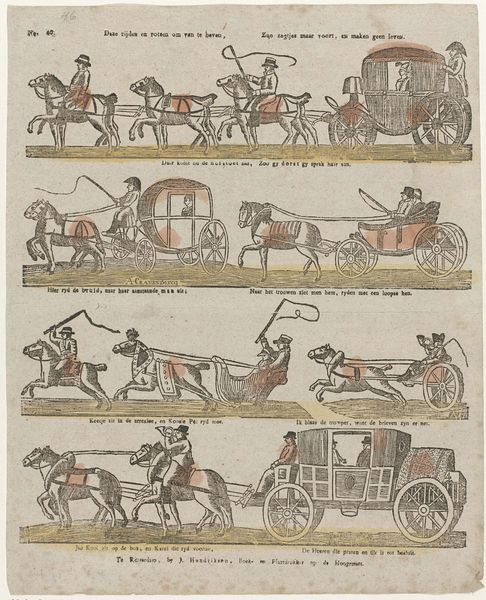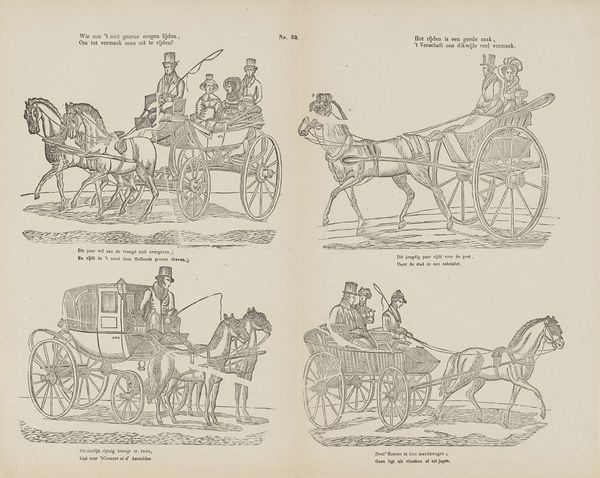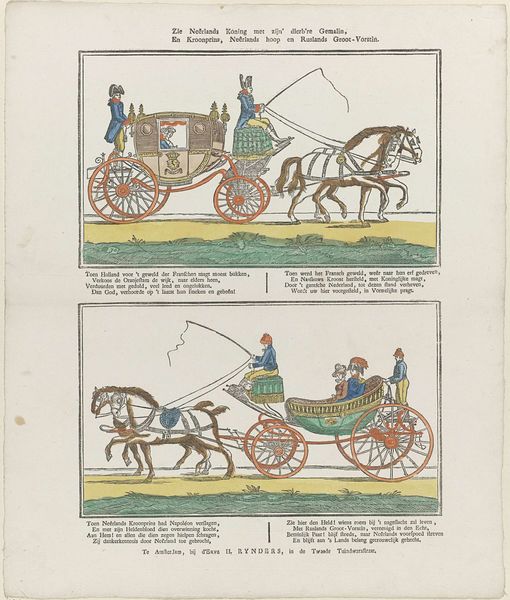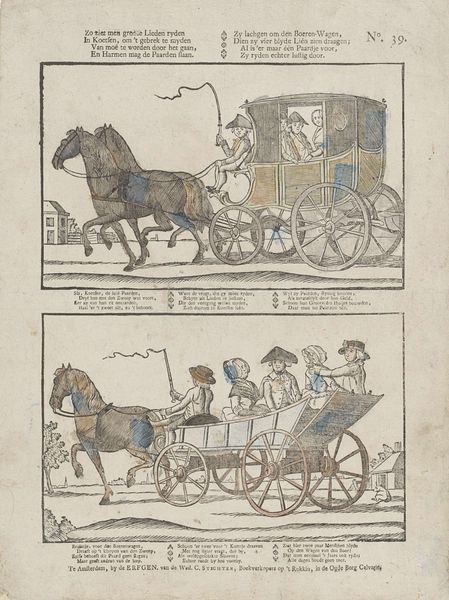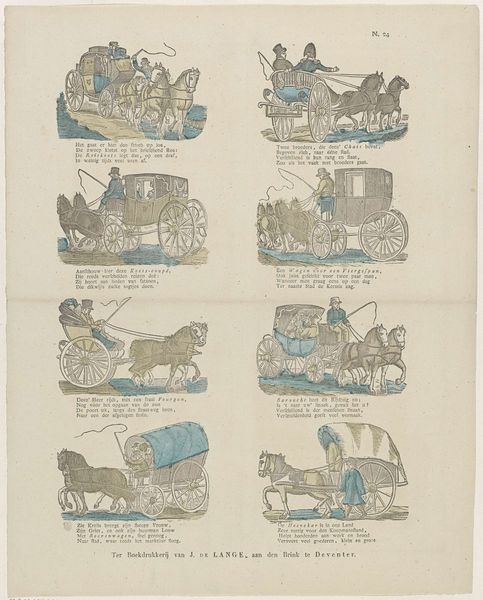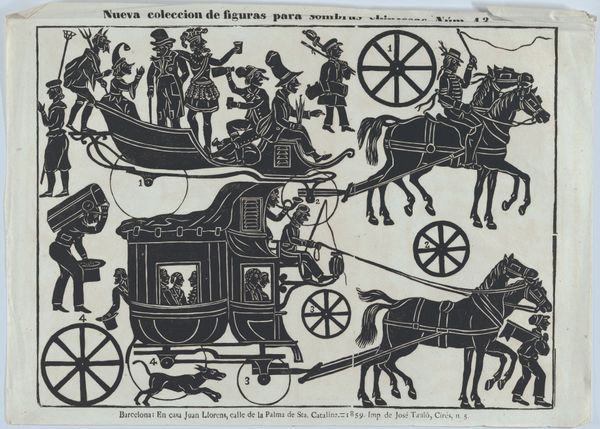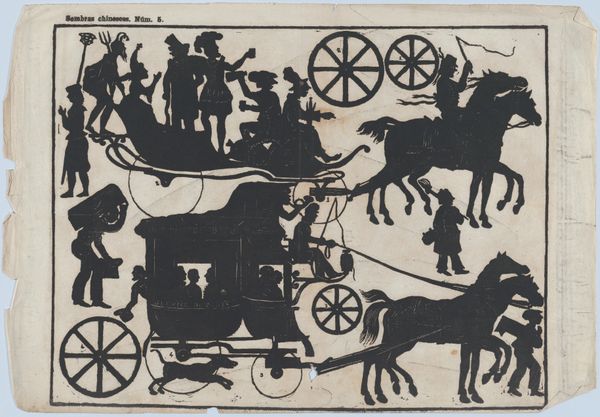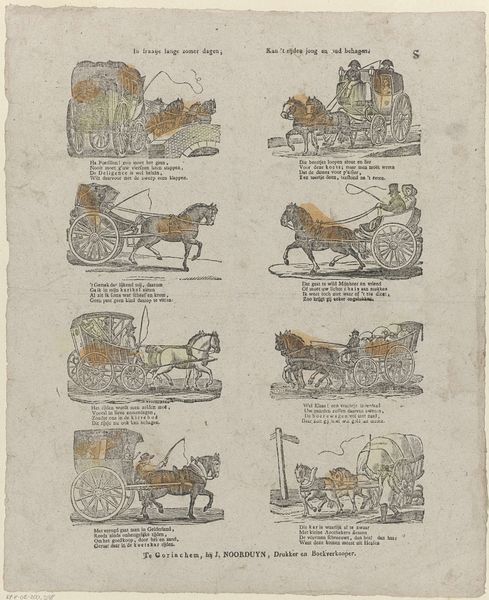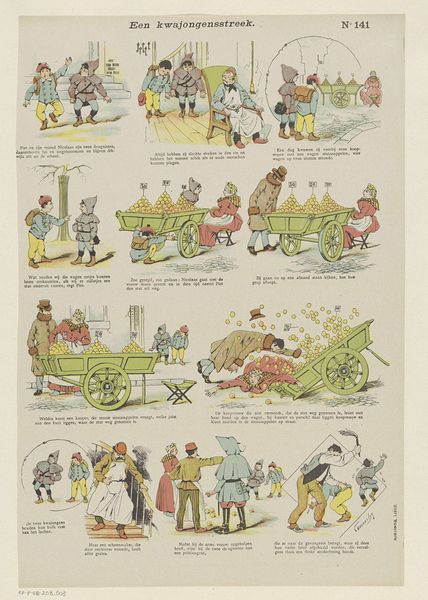
Rijtuigen voor ijzeren weg / Voitures pour cheminde fer 1800 - 1833
0:00
0:00
philippusjacobusbrepols
Rijksmuseum
drawing, lithograph, print
#
drawing
#
lithograph
# print
#
landscape
#
figuration
#
cityscape
#
genre-painting
Dimensions: height 381 mm, width 314 mm
Copyright: Rijks Museum: Open Domain
This print, "Rijtuigen voor ijzeren weg," was made by Philippus Jacobus Brepols. The lithographic process used to create this image involved drawing on a flat stone with a greasy crayon, then applying ink that would adhere only to the drawn areas. It’s a relatively quick and inexpensive method, ideally suited to mass production. Look closely, and you can see the subtle texture of the stone itself, giving the print a slightly grainy appearance. This print depicts a series of horse-drawn carriages, each meticulously rendered with attention to detail. The horses and carriages are not just modes of transport; they represent a social hierarchy and economic status. In the 19th century, owning a carriage was a symbol of wealth and power, reflecting the rise of a new industrial class. The print serves as a visual record of these social dynamics, showcasing the material culture of a rapidly changing world. Ultimately, this print reminds us that even seemingly simple images can reveal complex stories about labor, class, and the ways in which we move through the world.
Comments
No comments
Be the first to comment and join the conversation on the ultimate creative platform.
